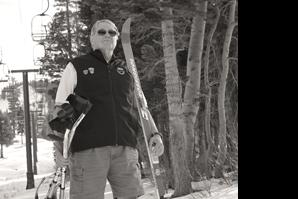During the past few weeks, many of us have been touched by the tributes to Nelson Mandela, the former South African president who died in early December at the age of 95. He was a remarkable leader, with the ability to inspire people and move them toward a common goal.
Mandela had a gift for seeing the world through a different lens, and one of his many insights was into the impact of sports on community. “Sport has the power to change the world,” he said. “It has the power to inspire. It has the power to unite people in a way that little else does. It speaks to youth in a language they understand.”
I was reminded of this quote when I saw the results of the recent California International Marathon, which drew more than 7,000 runners — and many, many spectators — into the freezing Sacramento weather. Among them were two impoverished but talented Kenyan runners, brought to California by an online fundraiser that generated more than $6,000.
“Nothing great was ever acheived without enthusiasm”
Ralph Waldo Emerson
The month before, our region’s 20th annual Run to Feed the Hungry on Thanksgiving morning broke all previous records, attracting more than 28,000 participants whose fees and donations support the Sacramento Food Bank. Throughout the year, runs like this raise money for worthy causes ranging from heart disease to local schools. One of my favorites is the Ugly Sweater 5K in which each participant wears, yes, an ugly sweater and brings a toy to help the local Toys for Tots chapter.
These are wonderful examples of the power of sports to involve and inspire people of all ages and interests, whether as participants or supporters.
Athletics also have the potential to help transform our region economically. Last year, the Sacramento Sports Commission (formerly a city agency but now part of the Sacramento Convention and Visitors Bureau) landed three major competitions that filled hotel rooms, restaurants and shops.
This year and next promise even more, including a U.S. track and field competition, the Amgen cycling tour, more lacrosse and the U.S. Senior Open golf championships. Add to that a new, minor league soccer team set to begin play in March and, of course, the incredible potential impact of a downtown arena, which will not only serve as home base for professional basketball but also give Sacramento a shot at attracting the NCAA men’s basketball tournament.
These events generate visitor and local spending, employment opportunities and tax revenues. As fans book hotels, purchase tickets and enjoy food and entertainment, they add millions of dollars to our community. The three largest sporting events in Sacramento last year are estimated to have brought in more than $3 million.
Beyond the dollars is the importance of sports in building both the spirit and image of our region. When we come together to walk, run, cycle, ski or spectate, we build a stronger sense of community. We also build and communicate the sense that we are an active, vibrant region that revels in activities of all kinds — and also, by the way, provides top-notch dining and entertainment.
That, to me, is real branding; the image of a community that flows naturally from the interests, activities and investments of residents. It is a brand and image that we can definitely lay claim to, especially as we look for every opportunity, large or small, to secure new and returning sporting events for the region.
As we begin 2014, let’s remind ourselves, as Nelson Mandela reminded us, that sports have far more potential than we typically acknowledge. If it has the power to change the world, it most certainly has the power to change our region.
Recommended For You

Along for the Ride
Second chances for needy horses
Alyssah Schafer was born with a congenital heart defect and has never been able to run or compete in sports. Over time, her friends drifted away, and the girl became depressed. But then she met a mustang named Montana at All About Equine, a horse rescue and rehabilitation organization in El Dorado Hills.

Learning to Live Again
Disabled sports bring fresh perspectives
Doug Pringle lost a leg to the Vietnam War in 1968. He was recovering at the Presidio of San Francisco hospital the day World War II veterans stopped by for a visit.


